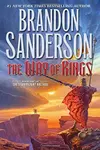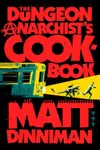Chris
I did not love this book, mostly because I struggle with overly complicated made up names for things, which this book has a lot of. But it also has a lot of heart and the main character is very sweet and also worth emulating in the ways one can. It was fun to watch him find his footing and I could be tempted to revisit the series later on.
I did not enjoy this book. I found it to be premised on a sort of “tragedy-porn”, ie the characters have lived through a whole lot of trauma. Which is fine. Except that trauma is largely left unexplored or used to advance a particular plot point. The main character is able to give up drinking after 15 years just because. Somebody’s parents are dead, somebody’s kid is dead, some people keep dying.
The main character is an unreliable asshole except the author doesn’t seem to realize it, even as he repeatedly makes bad selfish choices. It’s uninteresting. It is a feel good story that never earns the good feeling. It is a Thomas Kinkade painting etched onto a postage stamp. It does nothing to challenge the reader, or inspire. It is a Diet Coke.
Dungeon Crawler Carl continues to entertain. Jeff Hayes’ narration is fantastic and I don’t know if I’d connect with the book as well without him. I think I’d like it if Carl and Donut moved through more than one dungeon per book, but Dinniman is really able to flesh out the people who inhabit each level and keep readers engaged with new abilities and new challenges.
the book is fine. Decidedly fine. It is inoffensive, quick reading and yet I couldn’t continue. Life is too short for “find” and especially given that I made it over 300 pages before giving up. But 1100 pages isn’t worth it for a shrug of a book, especially with how many wonderful books exist in the world waiting to be read!
Vandermeer has such a way of writing nature that every time I open the book I feel humid heavy air around me, the mysteries of the natural world echoed through Area X. I don’t know if a resolution to this mystery can ever be satisfying but the journey certainly is, and Vandermeer’s exploration of who we are to ourselves and to others, that form a powerful through line through both Annihilation and this work.
Sarah Wynn-Williams has crafted a gripping memoir about her time with Facebook. While she is at least partly responsible for the dangerous reach of the company, she also acknowledges that and the tidal forces (primarily Zuckerberg and Sandberg) that could not be diverted despite her best efforts. In a just world, Wynn-Williams’ revelations would result in Facebook being dismantled and regulated piece by piece, but hopefully readers of her insights will at least be a bit more aware of treacherous tech can be in the wrong hands.
Dungeon Crawler Carl continues to be a fun and satisfying romp. I liked this book more than the 2nd installment, and Dinneman has ways of planting plot devices long before they come in handy, which ultimately makes them much more satisfying. The cast of characters compliment each other well and the heart of the series, Carl not losing his humanity, keeps pulling me along book after book. Glurp on that, friends.
I no longer know what to make of the Red Rising series. I loved the original trilogy, but was less taken by Iron Gold. Dark Age feels like more of the same. After a tidy and rewarding end in the original trilogy, Brown has gone all in on the flair for dramatics that made the series so fun.
Early on in this book, the MC describes another as "horny for violence", and honestly that's a fantastic encapsulation of the entire series. While it originally felt like a way to define itself beyond The Hunger Games comparisons, now it's become its own absurd calling card. Every experience of the main characters needs to be as gruesome as possible, although they themselves gleefully slaughter enemies in the thousands without a passing thought. It's over the top, but it works for the world Brown has created, although I find myself more tired of it than in the past.
One big weakness in the book, besides its length, is Lysander essentially gaining supernatural abilities to make him a better foil for Darrow. Which, sure, I get. I can see how down the road it will end up as a very satisfying arc for the characters, but in the moment it feels extra cheesy. Brown makes this worse by putting Lysander through absurdly lethal situations and he makes it out of each with ease. I suppose the same could be said for Darrow in every book, but it fits with his character never giving up. With Lysander it just feels clunky.
In conclusion, I've written far more about this book than I ever expected. In comparison to the original trilogy, the newer books have taken a dip in quality. Dark Age feels decidedly "mid".
I was sold on Rainbows End as a great book about AI, but it’s not really. As best I can describe, it’s Vinge’s version of Snow Crash, a portrayal of the absurdity of the future that he sees coming. For that, he does a fantastic job. Wearable computing and a person’s contacts showing them what a thing should look like instead of the blandness underneath.
However, the plot felt clunky and unfocused and some of the future-tech explanations were confusing. I still enjoyed Vinge’s writing but this was not what I expected, unfortunately.
A bite-sized reinvigoration of our connection to the earth and the natural reciprocal relationships we resist in the interest of market share. Robin Wall Kimmerer is at once asking more of us but in the compassionate correction of a well-practiced schoolteacher. Well worth revisiting on a regular basis.
Mostly I like the book. Weird and fast-paced, not sticking with a group or story for too long. However, I think it could’ve been trimmed in some places and expanded in others. I wanted more from some ideas and could’ve gone without others. I can see why it was shortlisted for the Mann Booker prize though. An interesting and thought-provoking read.
I gave this book a try after hearing it would scratch my Mass Effect itch. The world of the story certainly does and I appreciated learning the backstory of various species as humans joined the galaxy, but the writing is overwrought and clunky at times and often the characters have very bland, rote responses to things. Overall, I am interested in continuing the series but I hope the writing gets better.
Dungeon Crawler Carl continues to offer up crazy adventures and bizarre characters in the second installment. It’s slightly frustrating for it to be considered a second book, when really the series is one continuous story. There’s no closure at the end of one book.
But whatever, it is what it is, and Dinniman is very good at what it is. I am excited to see what happens to our heroes next, so I’m never bored or unsatisfied. I also appreciate the throughline of Carl’s resistance to the game and the people running it. He won’t let them break him.
A mostly funny and lighthearted adventure story. I thought the LitRPG aspect (whatever that is) would annoy me but it didn’t. I don’t need to keep track of the characters’ stats and can just enjoy the story. It is at times a bit too sophomoric for my taste, but the author knows what he’s doing as the MC’s distaste over the injustices he faces is made more and more apparent as time goes on. A solid adventure story even though it isn’t really a standalone novel.
A fascinating examination of how burglars think and utilize environments to their advantage. At times it felt like it could have been a lengthy article in a magazine, confirmed by the end revealing that several chapters had already been published in different places.
Still, a very interesting book examining how others think outside the box.

















































